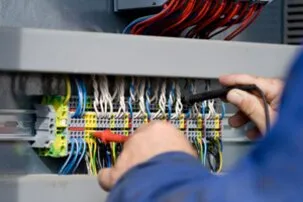An electrician is a skilled tradesperson who specializes in installing, maintaining, and repairing electrical systems and wiring in buildings, homes, and other structures. Electricians are responsible for ensuring that electrical systems are installed and functioning safely and efficiently, and they play a crucial role in the construction and maintenance of residential, commercial, and industrial buildings.
Electricians are trained to work with a wide range of electrical systems and equipment, including wiring, circuit breakers, switches, outlets, and lighting fixtures. They are also skilled in reading blueprints and technical diagrams, understanding electrical codes and regulations, and using a variety of tools and equipment to complete their work.
In addition to installation and maintenance work, electricians are often called upon to troubleshoot and repair electrical problems, such as short circuits, faulty wiring, and power outages. They may also be involved in upgrading and modernizing electrical systems to meet current safety and energy efficiency standards.
Electricians must have a strong understanding of electrical theory and principles, as well as a keen attention to detail and a commitment to safety. They must also be able to work independently and as part of a team, and possess good communication skills to effectively interact with clients, contractors, and other tradespeople.
Becoming an electrician typically requires completing a formal apprenticeship program, which combines on-the-job training with classroom instruction. Many electricians also obtain certification or licensure through a professional organization or government agency, which can demonstrate their expertise and qualifications to potential employers and clients.
Overall, electricians play a vital role in ensuring the safe and reliable operation of electrical systems, and their skills and expertise are essential in maintaining the infrastructure of modern society.

